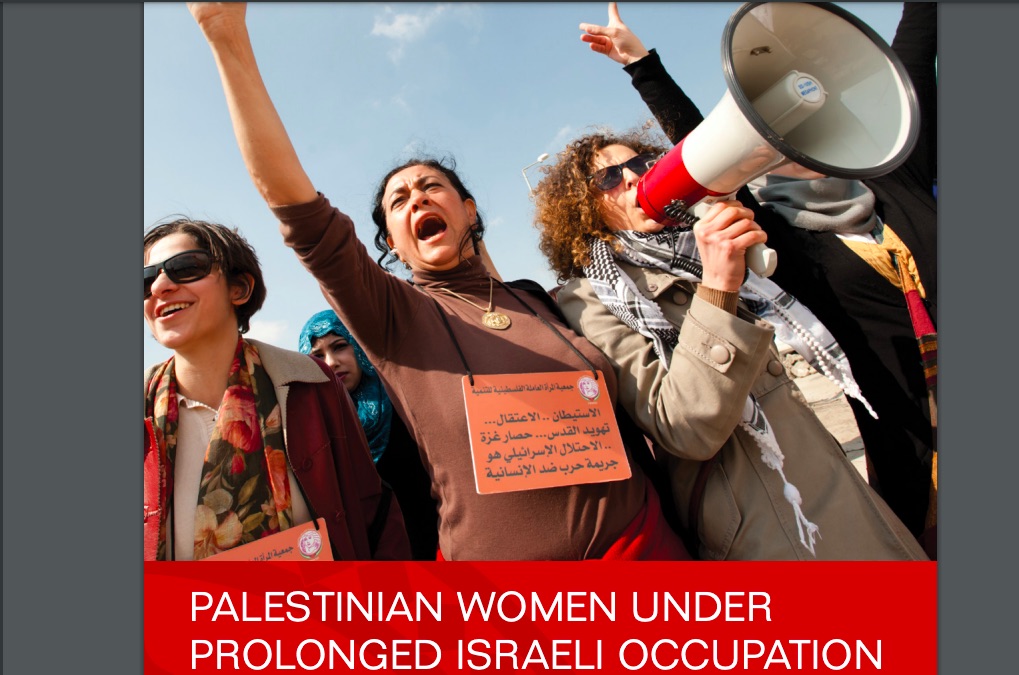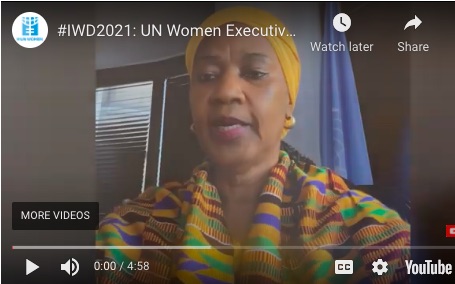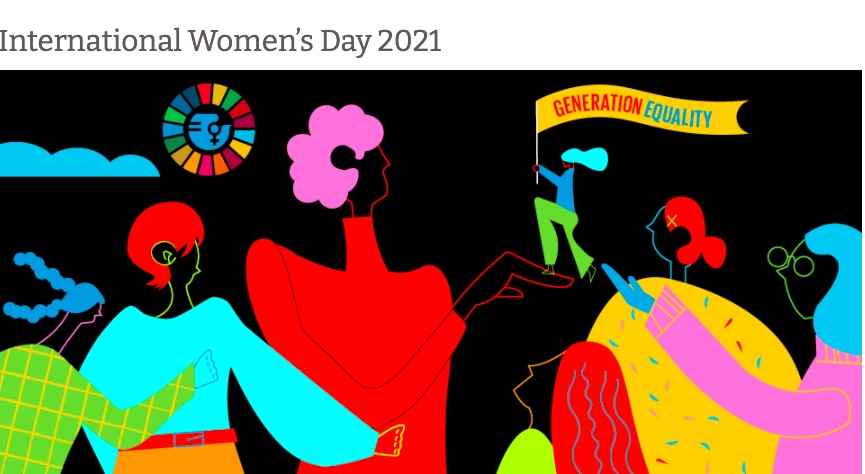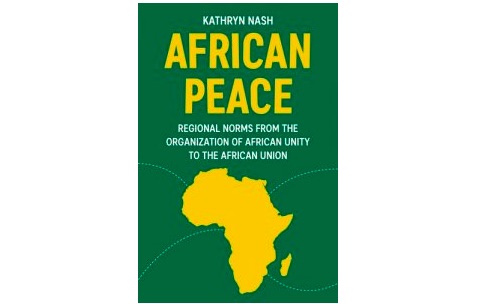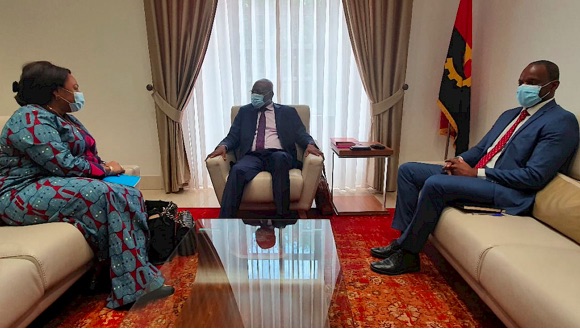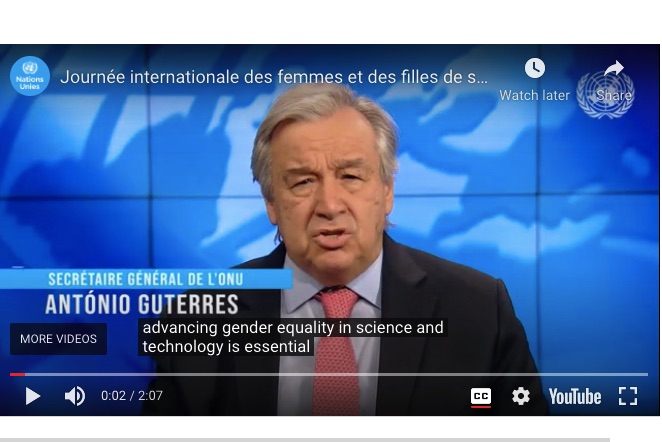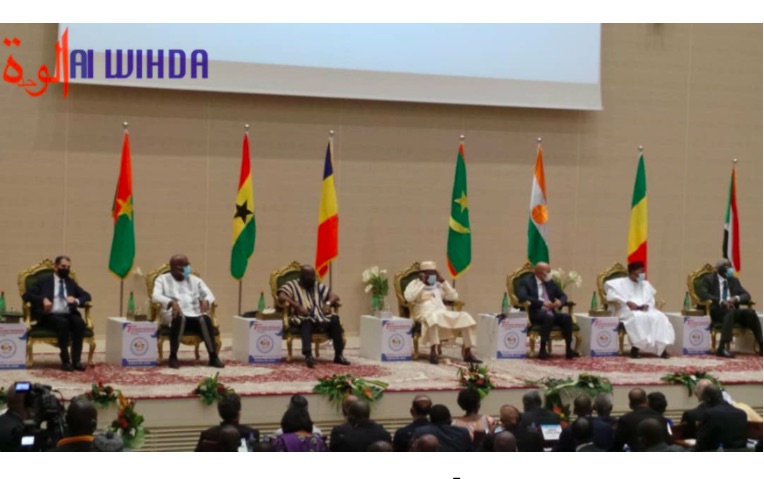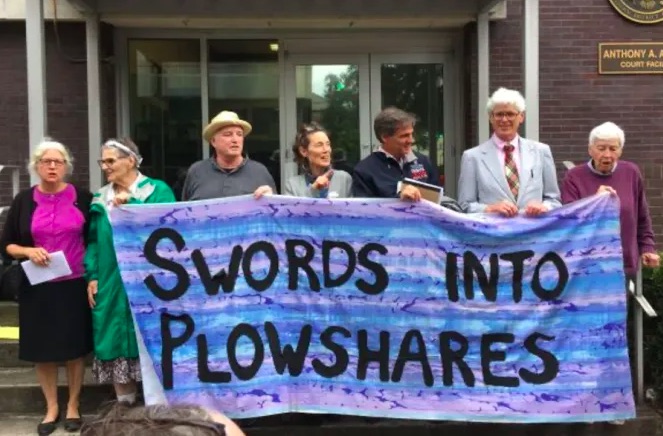FREE FLOW OF INFORMATION
Here are events and application deadlines in March that were previously listed on the CPNN page for upcoming virtual events. Where possible links are provided to recordings of the events. Unless otherwise noted the events are in English.

Mar 1, 2021 06:00 PM CET
World Future Day Launch of Youth Fusion Elders
An online intergenerational dialogue launching the Youth Fusion Elders initiative. The event is being held in conjunction with World Future Day and Nuclear Remembrance Day, both of which occur on March 1.
— This launch event will feature an inter-generational dialogue between youth and elders within the peace and nuclear disarmament fields. We will learn from the highly valuable experiences and knowledge of ‘Elders’ in a conversation facilitated by youth leaders.
Click here for YouTube recording.
3 Mars 2021 Heure : 10H (GMT)
“Repenser l’Afrique Post Covid 19”
Organisé par l’Institut Mandela en partenariat avec l’Ecole Doctorale GAMO et le Laboratoire de Recherches et d’Actions Diplomatiques (LaRAD) vous invitent à la Vidéoconférence Panafricaine.
— Panélistes:
1)- Son Excellence Madame Fatima HARAM ACYL, Vice-Présidente de la Commission de la CEMAC,
2)- Professeur Mohamed HARAKAT, Professeur à l’Université Mohamed V de Rabat, Responsable de l’Ecole Doctorale Gouvernance de l’Afrique et du Moyen-Orient (GAMO)
— Modérateur : Dr Paul KANANURA, Spécialiste en Géopolitique, Géostratégie et Gouvernance, Président de l’Institut Mandela.
— Youtube recording of Vidéoconférence
jeudi 4 mars 2021 de 9h30 à 13h00 (Central European Time)
Webinaire Sur Femmes, Education Et Culture
Un cycle de trois webinaires organisés en France par la Commission nationale consultative des droits de l’homme (CNCDH) dans le cadre de webinaires consacrés aux droits des femmes,
— Mme Stefania Giannini, Sous-directrice générale pour l’éducation prononcera l’allocution d’ouverture au nom de la Directrice générale de l’UNESCO, conjointement avec Mme Karima Bennoune, Rapporteuse spéciale des Nations Unies dans le domaine culturel.
— Mme Véronique Roger-Lacan, Ambassadrice, Déléguée permanente de la France auprès de l’UNESCO, prononcera l’allocution de clôture.
— Georges Kutukdjian, animera la Table ronde N° 1 sur Comment l’éducation peut-elle promouvoir l’égalité femmes-hommes ?
— Programme détaillé en ligne ici.
— Cliquez ici pour l’enregistrement vidéo.
March 8 from 11 AM to 12:30 PM Eastern Standard Time
Women’s Leadership in and for Health
Celebrated by the Pan American Health Organization
— Welcome remarks by Carissa Etienne, PAHO Director
— Panel Discussion:
Claudia López Hernández, Mayor of Bogotá, Colombia
Alejandra Mora Mora, Executive Secretary of the Inter-American Commission of
Women (CIM/OAS)
Julio Frenk, President of the University of Miami, U.S.A.
— Video – Women’s Leadership in and for Health
— Closing remarks by Mary Lou Valdez, PAHO Deputy Director
— Click here for the youtube recording
March 8 from 15:00-16:00 Central European Time
ILO celebration International Women’s Day
The International Labor Organization (ILO) proposes a high-level collective reflection on the challenges and opportunities in building a transformative agenda for gender equality as called for by the ILO Centenary Declaration
— Click here for the youtube recording.
Monday March 8 at 18:30 Central European time (12:30 Eastern Time USA)
Intergenerational Dialogue between Women Involved in Nuclear Disarmament
UNFOLD ZERO, Youth Fusion and Parliamentarians for Nuclear Non-proliferation and Disarmament (PNND) cordially invite you to join an inter-generational dialogue on March 8 highlighting the roles of women in the peace, disarmament and security fields, and the importance of including gender approaches to these issues in order to build more effective and sustainable security for all.
— Click here for the recording.
Tuesday, March 9, 2021 • 7:00 PM • Eastern Standard Time
Webinar: Leah Bolger on the U.S. Overseas Military Base Empire
The Overseas Military Base Empire: Presentation by Leah Bolger, President of the Board, World BEYOND War and retired U.S. Naval officer. She will present on the social, environmental, and economic impact of U.S. bases and how to close them.
— Sponsored by the CNY Beyond War and Militarism Committee
— The United States has over 200,000 troops stationed on more than 800 bases in more than 80 countries and all seven continents? They are provocative, increasing tensions throughout the world. Maintaining these bases drains hundreds of billions of U.S. tax dollars annually which could be much better used to fund human needs here and abroad.
— Host Contact Info: Greta, greta@worldbeyondwar.org
— Click here for the youtube recording.
March 9, 2021 11:00 AM in Bangkok
Together for Peace : Living Well with Super Diversity
On 30 and 31 March 2021, UNESCO Asia and the Pacific Regional Bureau for Education will be hosting the ‘Together for Peace (T4P) Regional Dialogue on the role of education in building a peaceful and sustainable future in Asia-Pacific’. As a leadup to this event, a series of three webinars on January 27, February 16, and March 9, will explore different dimensions of positive peace and solicit engagement from UNESCO National Commissions, development partners, education policymakers, teachers and school staff, and the general public.
— Living well with Super Diversity. Over the past several decades, there is an increasing recognition and acknowledgement among peoples and nations worldwide of the urgent challenges of living ethically and sustainably on a shared planet. Building a peaceful world must recognize that we are now living in global, national and local contexts where societies and communities are hyper connected, where mobility is accelerating, and where encounters with diversity are more salient in everyday realities and across social media and digital platforms. Such extreme diversity, if not acknowledged properly by the political and socio-economic systems in place, including education and the media, can unfortunately lead to misunderstandings, exclusion, marginalization, and violence.
— Click here for the youtube recording.
Wednesday, March 10, 2021 • 7:00 PM Greenwich Mean Time
No Return to Blair Wars – Online Launch
by Stop the Wars Coalition
Anti-war opinion is deeply embedded within British society and has been since the disaster of the Iraq War. The desire for a new foreign policy was part of the attraction of Jeremy Corbyn’s Labour Party; to distance itself from Corbyn, and the anti-war movement he represents, the Labour leadership has recently endorsed attacks on Stop the War – with accusations that by opposing wars we support dictators. Our members and supporters will recognise this trope.
— To rebuke these attacks Lindsey German and Andrew Murray have produced a new pamphlet, No Return to Blair Wars – A Reply to Open Labour, clarifying Stop the War Coalition’s anti-imperialist philosophy and setting out the left’s foreign policy choices.
— As a result of the overwhelming response and debate provoked by the pamphlet we’ve decided to host an online launch– event where you can hear from the authors and put forward your questions on the topics discussed in the pamphlet. We look forward to seeing you there.
— Click here for the youtube recording.
March 10, 2021 01:00 PM Eastern Standard Time
Taps for America’s empire of bases? Reducing the U.S. global bootprint
Sponsored by the Quincy Institute for Responsible Statecraft
The Biden administration is conducting a “Global Posture Review” meant to ensure that the worldwide presence of U.S. military forces is “appropriately aligned with our foreign policy and national security priorities.” This review offers an opportunity to change the way the United States deploys its forces, currently scattered on 800-some overseas bases. Momentum is growing to close hundreds of those bases and bring troops home, as proposed by experts across party lines in a new open letter. Join a group of those experts on Wednesday, March 1o from 1-2 pm EST to discuss why the Biden administration should sunset America’s base empire and how to strengthen U.S. national security in the process.
— The panel will include David Vine, professor of political anthropology at American University and board member of the Costs of War Project; Christine Ahn, Executive Director of Women Cross DMZ; and John Glaser, director of foreign policy studies at the Cato Institute. Quincy Institute President Andrew Bacevich will moderate.
— Click here for a recording of the event.
Wed, March 10th, at 10:00am-11:30am Eastern Standard Time (15:00-16:30 GMT)
Resisting Occupation: Connecting Palestine and Western Sahara
Sponsored by Nonviolence International (NVI)
— We will hear Palestinian, Sahrawi and other voices share their stories of nonviolent resistance to Moroccan and Israeli occupations. We have an amazing array of panelists that Mubarak Awad will be co-hosting with Rafif Jouejati a fellow NVI board member and Syrian-American human rights activist.
— Panelists:
Salka Barca, Founder of Karama Sahara, a Sahrawi advocacy group
Kamal Lfahsi, A Moroccan human rights activist
Stephen Zunes, Professor in international studies.
Jonathan Kuttab, NVI co-founder and Palestinian human rights lawyer.
— Click here for a recording of the webinar..
11 March 2021 08:00 – 09:30 Eastern Standard Time
Interactive dialogue: Counter-terrorism and COVID-19: Gendered perspectives
Join UN Women, the Office for Democratic Institutions and Human Rights of the Organization for Security and Co-operation in Europe (OSCE ODIHR), the Geneva Centre for Security Sector Governance (DCAF), and a panel of experts for a discussion on the gendered impacts of securitized approaches to preventing violent extremism and counter-terrorism, the new challenges that have emerged through the global pandemic, and the principles to guide civil society and governments moving forward. The webinar will be in English with simultaneous interpretation in Arabic, Spanish, French, and Russian.
— Full details
— Click here for a recording of the event.
March 11 @ 1:00 pm – 2:00 pm Greenwich Mean Time
Three forms of power-sharing and their relationship
sponsored by the Political Settlements Research Programme of The University of Edinburgh
— This webinar will examine the relationship between power-sharing and inclusion of non-dominant groups, and will use PA-X data to demonstrate how peace agreements provide for above-average inclusion of women, girls, and gender.
— Many case studies show post-conflict power-sharing to be exclusionary of various non-dominant groups. However, analysis of the PA-X database of peace agreements shows that those agreements with political power-sharing have provisions for women, girls and gender at a well above average rate. This research shows how Prof Christine Bell’s three-way functional typology of political power-sharing gives explanatory value to the relationship between power-sharing and inclusion. It shows that sub-state indigenous autonomy in particular is related to higher levels of inclusion of a variety of non-dominant groups in peace agreements. Further, the provisions in these agreements also tend to articulate inclusion in a particular way that emphasises community power rather elite driven aid. Featuring PSRP’s Dr Kevin McNicholl.
— The webinar was be held over Zoom, with joining links emailed to participants ahead of the event.
— Click here for a youtube recording.
March 16-25
Three Events at the United Nations Commission on the Status of Women 2021 (CSW65) sponsored by Pathways to Peace
Forced Sterilization and Rape as a Form of Genocide, March 16, 1:30 pm EST
Empowering the Divine Feminine Within, March 21, 4:30 pm, EST
Child Sexual Abuse Prevention, Identification, and Eradication, March 25, 9:30 am, EST
— Sign up for an account here. Due to an overwhelming response to our virtual platform and Parallel Event application, you can now register for free!
March 18, 7:00 pm Eastern Standard Time
The Doomsday Machine with Daniel Ellsberg
Daniel Ellsberg, the man best known for his courageous act of sharing the secret history of disastrous U.S. Vietnam War planning, also – at the age of 30 – designed the U.S. nuclear warfighting strategy and doctrine. Chastened and committed to preventing nuclear war and preparations for omnicide, Dan wrote The Doomsday Machine, which describes the dangerous and illusionary foundations of U.S. nuclear war planning and urges specific steps that can be taken to reduce the dangers of nuclear war.
— Registration
18 March 2021 at 9am Eastern Standard Time
Advancing Gender Equality
Based upon the feedback and recommendations received from the first Global Webinar Series, Religions for Peace, in coordination with Regional Offices, will convene the second series of global capacity development webinars in 2021, with a view to continuing to facilitate the process of strategic Learning Exchange among IRCs across the movement.
— These webinars will focus on our Six Strategic Goals:
Promote Peaceful, Just, and Inclusive Societies
Advance Gender Equality
Nurture A Sustainable Environment
Champion the Freedom of Thought, Conscience, and Religion
Strengthen Interreligious Education
Foster Multi-religious Collaboration and Global Partnerships
— Simultaneous translations for Arabic, French, and Spanish will be provided for all global webinars. Following each of these, regional webinars will be organized under the leadership of the Religions for PeaceRegional Secretaries General, in coordination with Religions for Peace International Secretariat.
— This event is by invitation only. Inquiries can be sent to pbartoli@rfp.org.
Thursday 18 March 2021, 15.30-17.30 Eastern Standard Time
Webinar – Seizing the moment: preparedness in early peace processes
An event hosted by Conciliation Resources and the United States Institute of Peace.
— This event, will explore how and under what conditions diverse stakeholders to conflict – such as non-violent movements, mediation support actors and conflict parties themselves – can seize opportunities to build nascent peace processes in the midst of challenging conflict contexts. The conversation will draw on Conciliation Resources’ latest Accord series publications, Pioneering peace pathways, outlining strategies and innovations to enable more resilient peacemaking practice, with reference to the emergence of Covid-19 and the growing climate crisis.
— Speakers:
Alexander Ramsbotham (Conciliation Resources)
Tabatha Thompson (United States Institute of Peace)
Cate Buchanan (Independent, Pioneering peace pathways Issue Editor)
Sophie Haspeslagh (American University Cairo)
Jonathan Pinckney (United States Institute of Peace)
Irena Grizelj (Independent, expert on youth participation in peace processes)
Michael Frank Alar (consultant, currently World Bank’s Fragility, Conflict and Violence team)
Ayak Chol (Strategic Defence and Security Review Board, South Sudan)
John Packer (Professor of International Conflict Resolution, University of Ottawa)
Ulrike Hopp-Nishanka (Senior Policy Officer, German Federal Government; conflict transformation practitioner)
TBC (Sasakawa Peace Foundation)
— Click here for a youtube recording of the webinar.
18 March 2021 (Thursday) 10:00-11:00 AM Japan Standard Time (08:00-09:00 PM Eastern Standard Time)
Initiative for Peace in South Sudan: Insights from the Work of the Community of Sant’Egidio
A Webinar of the Network for Education and Research on Peace and Sustainability
— Speaker: Dr. Andrea Bartoli, the President of the Sant’Egidio Foundation for Peace and Dialogue. He works primarily on peacemaking and genocide prevention.
— Discussant: Mari Katayanagi, teacher at both International Peace and Coexistence Programme (IPC Programme), Graduate School of Humanities and Social Sciences; and Department of Integrated Global Studies, Faculty of Integrated Arts and Sciences, Hiroshima University.
— Click here for a recording of the webinar.
March 20, 2021 15:00 Central European Time
“Peace & Security in Albania” conference
Sponsored by Pathways to Peace, Së Bashku and the Nuclear Age Peace Foundation
— This conference will focus on further establishing peace & security in Albania and will address humanitarian impact, European security, health, and women, peace, and security.
— Some notable speakers include:
Parliamentarian Elona Gjebrea Hoxha,
Parliamentarian Ermonela Felaj,
Daniel Högsta (ICAN),
Deputy Ambassador Clarisse Pasztory of the OSCE PiA,
Mayor of Mati Agron Malaj,
Secretary General of Red Cross Albania Artur Katuci,
Rinor Jani of Pathways To Peace,
Suela Lala of Fondacioni Së Bashku,
Christian Ciobanu of Nuclear Age Peace Foundation, and more.
— Register here
Sunday, March 21st – 4:00 PM to 11:00 PM Eastern Standard Time
THE COLD WAR TRUTH COMMISSION: A Day of Education, Testimonials & Action
Sponsored by Witness For Peace Southwest, CODEPINK & Addicted To War
— Part 1 Roots of U.S. Anti-Communism and Cold War
— Part II The Domestic U.S. Cold War
— Part III The U.S. Global Cold War, Then and Now
— Detailed program
— For More Information Contact Rachel: sojournerrb@yahoo.com – 310-971-8280 or Frank at: frank.dorrel@gmail.com – 310-838-8131
— Click here for a recording of the event.
— A youtube recording is also available here
Mon, March 22, 2021, 8:00 PM – 9:30 PM Central European Time
An evening with Ray Acheson and a preview of her brilliant new book: “Banning the Bomb, Smashing the Patriarchy”
The book offers a look inside the antinuclear movement and the recent successful campaign to ban the bomb — from scrappy organising to winning the Nobel Peace Prize in 2017 and achieving a landmark UN Treaty banning nuclear weapons.
— Hosted by Scottish & UK ICAN Partners: WILPF, Scottish CND, Medact Scotland, UN House Scotland, Peace & Justice, and Trident Ploughshares.
— Register here
March 23, 2021, 6:30-8:30 pm Eastern Standard Time (USA)
Women as Catalysts for Peace
Hosted by Affinity Intercultural Foundation & the Institute for Economics & Peace (IEP)
— The integrated nature of the SDGs shows the strong link of peaceful and inclusive societies with strong institutions to the achievement of gender equality and the empowerment of women. Investing in women’s leadership, economic empowerment and breaking down the barriers to enable women to thrive contributes to a peaceful and inclusive society. Better gender data matters for if we are not measuring progress, it can be very hard to call attention to the problem and find solutions. IEP is dedicated to shifting the world’s focus to peace as a positive, tangible and achievable measure of human well-being and progress. IEP women peace practitioners will be featured.
— Click here for a youtube recording of the event.
Tuesday, March 23: Noon. Eastern Standard Time
Walk with Me: A Biography of Fannie Lou Hamer
Sponsored by the Center for Nonviolent Solutions
Author Kate Clifford Larson speaks on her upcoming biography of civil rights leader Fannie Lou Hamer. Fannie Lou Hamer was an extraordinary American activist whose fight for basic human and political rights changed the course of the Civil Rights Movement of the 1960s
— Click here for youtube recording.
March 24, Wednesday, 3 p.m. Eastern Standard Time
Demilitarize the Budget! Budget Advocacy Training
Sponsored by the American Friends Service Committee
In this webinar, you’ll learn why the United States’ militarized budget is such a problem, how the budget and appropriations process works, and how you can get involved in the call to move money out of militarism and into our communities!
— Speakers Include:
Ashik Siddique, National Priorities Project
Savannah Wooten, Public Citizen
Moderator: Tori Bateman, AFSC
— Click here for a recording of the webinar
— It is also available on youtube.
Thursday March 25, 1:00-2:45 Eastern Standard Time
CSW65 Dialogue: “Women Leaders Impact Change”
An event supported and promoted by the Global NGO Executive Committee
For our contribution during the 65th session of the Commission on the Status of Women we have a dialogue with Women Leaders from various sectors and regions who will share their initiatives that support women’s rights and gender equality.
Register here
Thursday March 25th 2021 • 6:00 pm Eastern Standard Time
Common Ground: A Defining Moment
An anniversary program of Search for Common Ground
— Since 1982, we have worked on the frontlines of violent conflict, learning hard but powerful lessons. We know how to bring people together to identify their common interests, and how to heal communities to prevent violent conflict.
— On Thursday, March 25th, we will take stock of this defining moment and share lessons about how to find common ground and use it to strengthen your country, community, and own life. We hope that you can join us virtually for a special anniversary celebration as we rise to meet this moment.
— Click here for a youtube recording of the program.
Friday, March 26, 2021 • 6:00 PM • Greenwich Mean Time
Online Rally: #YemenCantWait – Stop British Support for the War
The Saudi-led war on Yemen is about to enter its sixth destructive year. According to a recent UN report, the war has already claimed 233,000 lives. It is estimated that 24 million Yemenis need humanitarian assistance – some 80% of the population – which is being thwarted by the Saudi-led coalition’s air and naval blockade of the country.
— And who is the main Western backer of the war? Boris Johnson and his Tory government. Even after Joe Biden announced an end to US support for the war the British government shamefully continues to sell bombs and aircraft to the Saudi regime who have created the worst humanitarian crisis on earth.
— We call on the British government to stop prolonging the carnage in Yemen by ending all arms sales and military support for the Saudi-led coalition immediately.
— Host Contact Info: office@stopwar.org.uk
— Click here for a youtube recording of the event.
Sunday, 28 March 2021 at 2:00 to 4:00 PM EDT (Toronto Time)
Project Save the World Invites You to our Next Monthly Global Town Hall
On the last Sunday of every month, we hold an open meeting on Zoom for activists worldwide who are addressing issues of militarism (especially nuclear weapons), global warming, famine, pandemics, radioactive contamination, and/or cyber risks.
— We talk for two hours with our video cameras on (not just audio, please), edit the recording, and put it on YouTube, Facebook, and our website: https://tosavetheworld.ca and then we publicize it widely.
— Facebook Event Page
— Visit Our Website at https://tosavetheworld.ca
— Join us here by zoom
Tuesday, March 30th, 7:00 p.m. Eastern Standard Time
Annual Meeting of the Center for Nonviolent Studies
The evening includes a brief review of our 2020 programs and a presentation by Paula Green and Beth Johnson on Hands Across the Hills: US Dialogues in an Era of Polarization, a highly recognized residential program of dialogue and cultural exchange engaging progressives from Western Massachusetts with conservatives from Eastern Kentucky coal country.
— Youtube recording of the meeting.
Mar 30, 2021 11:00 AM Eastern Standard Time (US and Canada)
A Seat at the Table: In Conversation with Ambassador Swanee Hunt focused on women in roles of leadership
Join the World Trade Center Washington, DC and the World Trade Center Dublin for a webinar series focused on women in roles of leadership in diplomacy, international business, philanthropy, culture and the arts. Hosted by Susan Sloan, author of “A Seat at the Table: Women, Diplomacy and Lessons for the World” our first conversation will feature Ambassador Swanee Hunt, activist, philanthropist, scholar, artist, internationalist, former U.S. Ambassador to Austria and founder of the DC-based Institute for Inclusive Security.
— Click here for a youtube recording of the conversation.
Tuesday, March 30, 2021: 8:00 – 9:30 pm Eastern Standard Time
Webinar for nuclear abolition
This webinar, featuring three internationally recognized advocates for nuclear abolition, will provide an update on nuclear weapons policies and programs and an overview of relevant developments in international law. It will also expand thinking on the need to rethink familiar approaches to disarmament and to shift the focus of disarmament advocacy from recognizing the effects of nuclear weapons to analyzing the causes of nuclear arms racing and the risks of war among nuclear-armed countries. How do the same root causes drive many of our most pressing crises? Speakers include Jackie Cabasso, co-convener of United for Peace and Justice (UFPJ).
— Click here to register.
Tuesday, March 30th at 12 pm Eastern Standard Time
The Hard Choices that Women Peacebuilders Face
Women all over the world are dedicating their lives to building peace and ending violence. But while their impact gets the spotlight, their challenges, sacrifices, and personal hardships often do not. What hard choices do they face? What do they choose? On occasion of Women’s History Month, Search for Common Ground is tackling these questions at an interactive discussion.
— Our speakers:
Adrienne Lemon, Director, Institutional Learning Team at Search for Common Ground
Aude Darnal, Associate Director of the New American Engagement Initiative at the Atlantic Council
Mena Ayazi (moderator), Program Officer, Children & Youth at Search for Common Ground
— Click here for a recording of the event.
